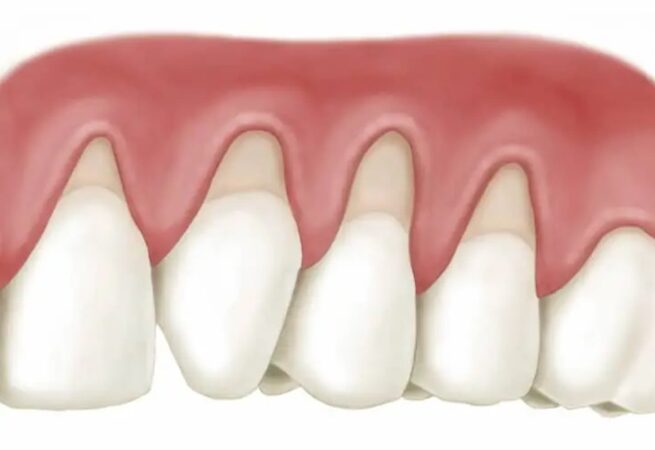

What Is BAC And How Is It Discovered?
To a chemist, “alcohol” refers to any organic substance with an OH group, yet to the general public, “alcohol” signifies just one thing: ethanol. Consuming alcoholic beverages such as wine or beer raises one’s BAC, which is really a measurement of how much ethanol has been absorbed into one’s bloodstream.
An anode and a cathode are found in breath analyzers (Breathalyzer is a trademark name) (positively charged electrode). The acetic acid in your breath is produced when the ethanol in your breath combines with the air’s water at the anode in a breathalyzer.
Conversely, water is formed when atmospheric oxygen is decreased at the cathode. The quantity of ethanol in your breath is converted into a voltage by two linked processes that occur between the electrodes. Therefore, breathalyzers estimate blood alcohol concentration from ethanol in breath rather than measuring it directly.
Sometimes a breathalyzer may give a false reading of blood alcohol content. Significantly, those with higher-than-average acetone levels in their breath may have it identified as ethanol. People with diabetes, those following a ketogenic diet, and those on fasting diets are all examples. A breathalyzer may also be affected by a small number of other compounds, but they are not ones that are likely to be present in your blood.
Blood alcohol testing: What exactly is it?
The amount of alcohol in your blood is determined by doing a blood alcohol test. The breathalyzer is the most common type of sobriety test performed by police officers, and is thus more familiar to the general public. While the findings from a breathalyzer are immediate, they are not as precise as those from a blood test.
Drunkenness, also known as intoxication, occurs when an individual consumes more alcohol than their liver can handle in a given period of time. Alterations in behavior and skewed decision making are two examples. It’s possible for alcohol’s effects to differ from one individual to the next, depending on variables including body mass index, gender, and the timing of one’s meal before imbibing. Soberlink is the best brand and its reports can be helpful in Child Custudy Cases. To know more, you can read Soberlink Reviews here.
In what ways is it helpful?
If your doctor suspects that you have too much alcohol in your blood, they may order a blood alcohol test to determine if:
- Imbibed and operated a motor vehicle. To legally operate a motor vehicle in the United States, drivers must have a blood alcohol concentration (BAC) of less than 0.08 percent. Drivers under the age of 21 are prohibited from having any traces of alcohol in their systems.
- Have a blood alcohol concentration (BAC) over the legal limit. Intoxication limits in public places are subject to wide variation between jurisdictions.
- Been drinking while participating in a rehabilitation program that specifically forbids it.
- Achieve a lethal quantity of alcohol in your blood, a condition known as alcohol poisoning. Normal bodily processes including respiration, heart rate, and temperature can be severely disrupted by alcohol poisoning.

When Is It Necessary To Consult A Chest Specialist?
A pulmonologist is an internal medicine physician focusing on the lungs and breathing. In this field of medicine, patients typically see a pulmonologist.
A pulmonologist is a medical doctor specializing in diagnosing and treating respiratory diseases in people of all ages. Their area of expertise may occasionally extend to include the cardiovascular system.
Pulmonary vascular disease is just one example of a medical disorder that initially manifests in the respiratory system and spreads to other body parts. Pulmonologists may work independently or with other medical professionals to diagnose and treat patients.
A pulmonologist’s hospital work often takes place in the intensive care unit (intensive care unit).
Reasons to visit a pulmonologist
A pulmonologist may be consulted if a primary care physician is unsuccessful in managing the patient’s asthma. Patients with newly identified respiratory conditions often require the expertise of a pulmonologist for additional evaluation and diagnosis.
Some of the symptoms that necessitate a visit to a chest specialist in Jammu are as follows:
Asthma
One’s airways (the passageways through which air travels to and from the lungs) might become inflamed and swollen due to asthma-related chronic lung illness. A person with asthma will have a more severe reaction to allergens because their airway linings will be irritated.
Pollen, pet dander, cigarette smoke, and even strenuous exercise can all trigger an allergic reaction in some people.
The airways constrict, and the lungs receive less oxygen when a person is exposed to allergens. As a result, night-time and early morning are terrible times for symptoms like coughing, wheezing, breathing trouble, and chest tightness to manifest.
A worsening of these symptoms characterizes asthma attacks. Due to the potentially destructive nature of severe asthma attacks, sufferers must have access to long-term treatment and emergency medications in the event of an asthma flare.
Infections of the Lungs
Infections in the lungs can make it hard to breathe. Primary care physicians can detect and treat most bronchitis and other common lung infections. However, a pulmonologist’s skillset is essential for diagnosing and treating complicated lung infections. When individuals get bronchitis, pneumonia, or tuberculosis, they often need to see a pulmonologist.
Cystic Fibrosis (CF)
Cystic fibrosis affects perspiration, mucus, and digestive fluid-producing cells (CF). Upper respiratory, lungs, skin, digestive, and genitourinary cells are most affected. Body fluids are liquid and slippery. The defective gene in cystic fibrosis causes thick, sticky secretions.
When these fluids no longer lubricate the body, they clog ducts, tubes, and airways, notably in the pancreas and lungs. Chronic coughing produces thick, sticky mucus and can lead to chronic lung damage in cystic fibrosis. With cystic fibrosis, lung illness can be lethal.
Chronic Obstructive Pulmonary Disease (COPD)
Airflow obstruction causes the symptoms of chronic obstructive pulmonary disease (COPD), which include coughing, shortness of breath, wheezing, and sputum production.
Chronic exposure to irritating chemicals or particle pollution, especially cigarette smoke, is the most common cause of the chronic obstructive pulmonary disease (COPD).
Those who suffer from the chronic obstructive pulmonary disease (COPD) are more likely to acquire lung cancer and cardiovascular disease.
Chronic bronchitis and emphysema cause COPD. COPD’s symptoms can be addressed with medicines, oxygen therapy, and surgery.
Seek professional help
Consult a pulmonologist or chest specialist in Jammu if you have respiratory issues or any of the above symptoms. You can visit our website for more details on chest specialists.












